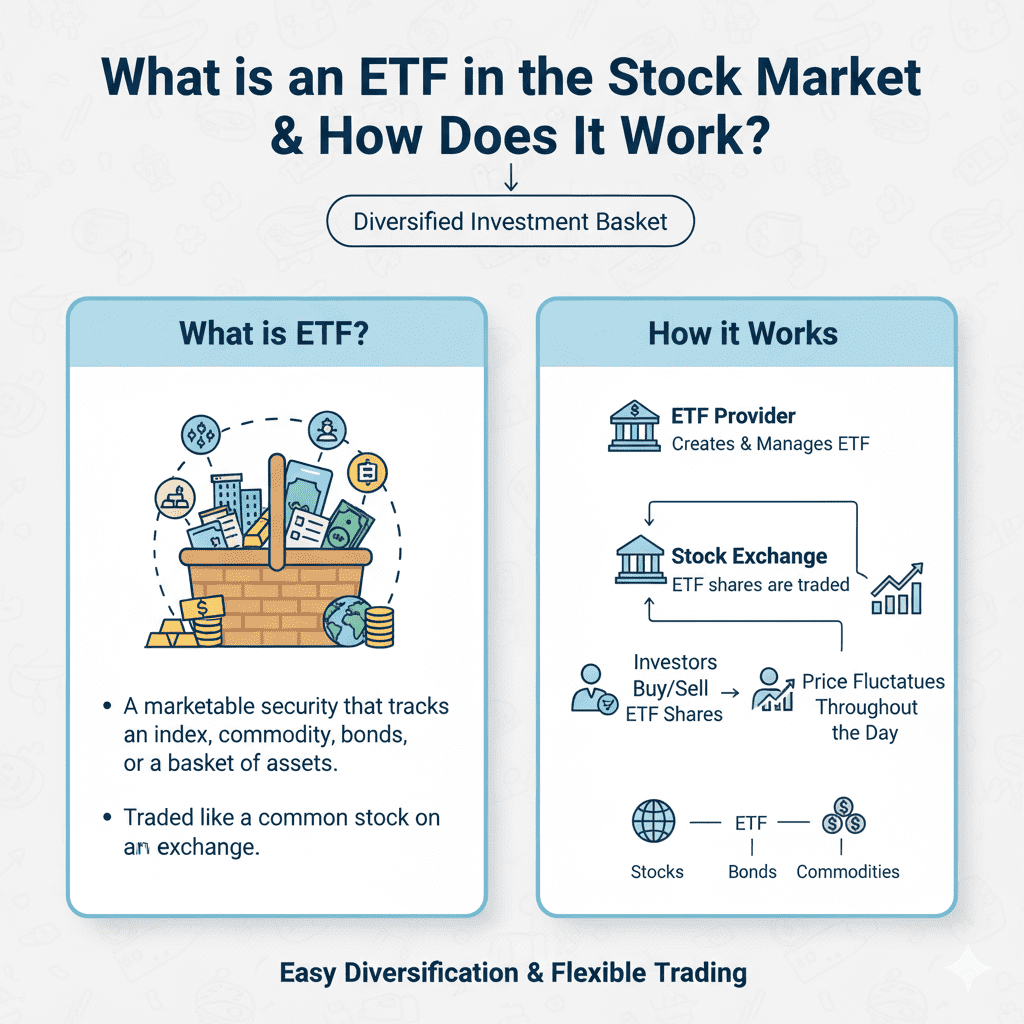



“What is an ETF in the stock market and how does it work?”
An Exchange Traded Fund (ETF) is one of the most popular investment options among both investors and traders. An ETF is a type of fund that owns a collection of securities such as stocks, bonds or commodities, and it trades on a stock exchange just like a share.
The biggest advantage of ETFs is that they combine the features of both stocks and mutual funds. Like a stock, you can buy and sell ETFs throughout market hours at live prices, which is known as ETF trading. Like a mutual fund, they provide diversification by pooling together many securities in one basket. This makes them flexible, transparent and cost-efficient.
For instance, one of the most well-known ETF examples in India is the Nippon India ETF Nifty BeES. It mirrors the performance of the Nifty 50 index, which means buying one unit of this ETF gives you exposure to all 50 companies in the index. Similarly, globally, the SPDR S&P 500 ETF (SPY) is one of the most traded ETFs in the United States, tracking the S&P 500 index. These examples show how ETFs give instant diversification with a single transaction.
Investors often compare ETF vs mutual fund. Mutual funds are priced only once at the end of the trading day, while ETFs can be traded instantly on the exchange. ETFs usually have lower expense ratios than mutual funds and publish their holdings daily, which adds transparency. Many new investors search “Are ETFs good for beginners?” The answer is yes, because ETFs allow even small investments to gain exposure to a wide portfolio without buying individual stocks one by one.
Still, no investment is risk-free. Traders often search “ETF benefits and risks”. The main benefit is low cost, diversification and liquidity. The risk is that ETFs are market-linked, so their value can go up or down with the broader economy. Some ETFs also focus on specific sectors or commodities, which may be more volatile.
In short, ETFs provide the convenience of stock trading and the diversification of mutual funds. For those searching “best ETF for investment in India”, the choice depends on goals and risk profile. Equity ETFs, debt ETFs and gold ETFs are some of the most common categories that help investors build a balanced portfolio.